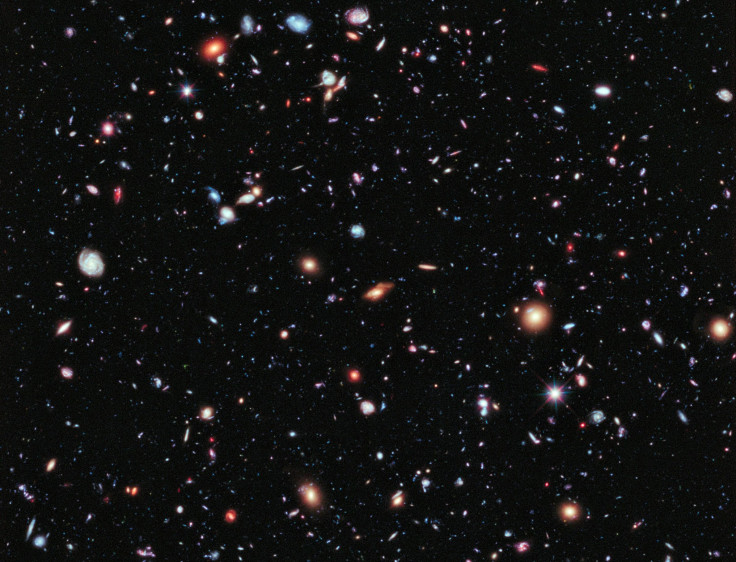Is The Universe’s Expansion Accelerating? Probably Not, Researchers Say In New Study

The universe is expanding. And as it does so, it is also accelerating, such that every second, the speed at which space-time is expanding is faster than what it was a second before — at least as far as the conventional understanding goes.
In 2011, three researchers who proved that the universe’s expansion was speeding up by studying Type Ia supernovae — which are objects that always explode with the same brightness, making them one of the “standard candles” astronomers use to gauge distance in the cosmos — were even awarded the Physics Nobel prize.
Now, in a new study published in Scientific Reports, a team of researchers has challenged this idea, arguing, based on analysis of 740 Type Ia supernovae — more than 10 times the original sample size — that the universe’s rate of expansion is constant.
“[We] found that the evidence for accelerated expansion is, at most, what physicists call ‘3 sigma.’ This is far short of the 5 sigma standard required to claim a discovery of fundamental significance,” lead researcher Subir Sarkar from the Niels Bohr Institute in Denmark, and the University of Oxford in the U.K., said in a statement Friday.
If this is true, does that mean that our estimate of “dark energy” — the mysterious stuff we think makes up nearly 70 percent of the universe, and which is believed to drive the accelerated expansion of the cosmos — is also off?
Probably.
“It is quite possible that we are being misled and that the apparent manifestation of dark energy is a consequence of analysing the data in an oversimplified theoretical model – one that was in fact constructed in the 1930s, long before there was any real data,” Sarkar said. “A more sophisticated theoretical framework accounting for the observation that the universe is not exactly homogeneous and that its matter content may not behave as an ideal gas – two key assumptions of standard cosmology – may well be able to account for all observations without requiring dark energy.”
However, before we throw out what has now become the central tenet of cosmology, it is important to note that these are the findings of just one study, and that further observations would be needed to either prove, or disprove, its conclusions.
“Naturally, a lot of work will be necessary to convince the physics community of this, but our work serves to demonstrate that a key pillar of the standard cosmological model is rather shaky. Hopefully this will motivate better analyses of cosmological data, as well as inspiring theorists to investigate more nuanced cosmological models,” Sarkar said.
© Copyright IBTimes 2024. All rights reserved.





















